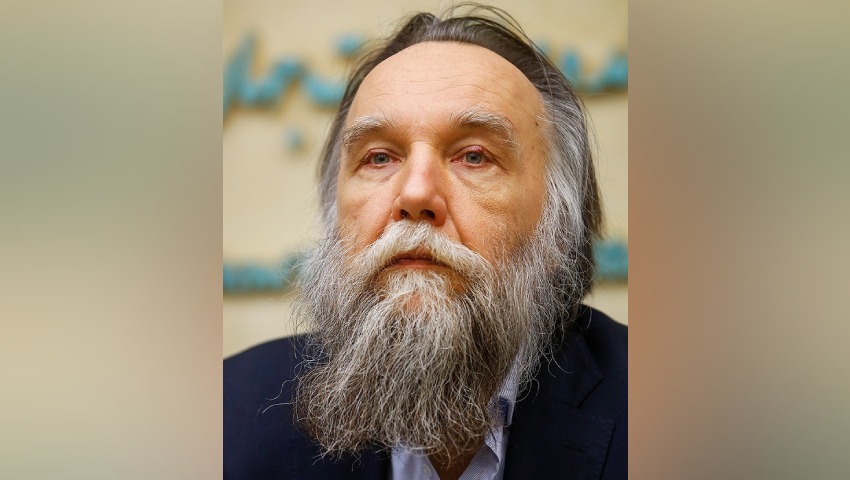Fashioned by Russian political theorist Alexander Dugin, Neo-Eurasianism is a rabidly anti-liberal geostrategic ideology that seeks to turn Russia into a hegemon of the new multipolar world. So just how much influence does it wield in the Kremlin?
To continue reading the rest of this article, please log in.
Create free account to get unlimited news articles and more!
The short answer, lots.
What is Neo-Eurasianism?
Eurasianism first came to prominence in the 1920s. As a political theory, Eurasianism posits that the Eurasian civilisation is unique from both Western European and Eastern Asian cultures, with each civilisation unique and incompatible – influenced by centuries of linguistic idiosyncrasy, geography, history, and interaction of peoples.
At the time, the theory contended that the Bolshevik Revolution was a response to the Westernisation of Imperial Russia and the Tsardom, with many proponents of the theory syncretising support for the newly formed Soviet government with previous imperial ambition to advocate for a greater Russia. This support among early Eurasianist thinkers such as Nikolai Trubetzkoy later washed away as the Soviets dismantled historical elements of Russian tradition and culture such as the Russian Orthodox Church.
Though, the ideology continued during the USSR through Lev Gumilev who fostered a narrative shift among proponents of Eurasianism and Russian nationalism. According to Tristan Kenderdine’s review essay Lev Gumilev’s Eurasianism and ethnonationalist misappropriation of historical geography, the anthropologist “changed the shape of the historical geography of Russia. His work forced a paradigm shift from the orthodox historiography of Russian survival of the Mongol invasions, to a view of Russian history that better reflected the institutional interactions between Russia and Turkic and Mongol peoples on the Eurasian landmass”.
As such, under Gumilev’s academic leadership, the narrative of Russian nationalism shifted from ethno-centric Russianism through to the broader concept that Eurasia has been shaped by interaction of a number of local ethnographies.
This brings us to modern Neo-Eurasianist thought, fashioned by Alexander Dugin.
Dugin has a checkered political background. Kicked out of the Moscow Aviation Institute in the early 1980s for translating the works of far-right Western thinkers such as Julius Evola, Dugin later joined underground right-wing movements including the Iuzhinskii Circle and Pamiat – the latter of which he was expelled from due to his tendency toward Nazism.
While being an anti-Communist (while simultaneously an avowed Stalinist), Dugin was quoted in the University of California Press as suggesting that “Stalin expresses the spirit of Soviet society and the Soviet people”, and was the “greatest personality in Russian history”.
Following the collapse of the Soviet Union, Dugin turned toward political activism.
Following the creation of Dugin’s National Bolshevik Front in the early 1990s (NazBols), Dugin aligned his nationalist-cum-Stalinist political party with the National Salvation Front in the 1990s (a coalition of communist and nationalist groups).
While this may appear philosophically incoherent, and it is, Dugin’s patchwork of philosophies represent a nostalgia toward Russian strength – and the belief that Eurasia should play a critical role at the centre of a new multipolar world.
This patchwork of tangential political theories and the embrace of multipolarity is tied together by the rejection of Western liberalism.
According to Andrey Tolstoy and Edmund McCaffray in the World Affairs journal, liberalism is morally wrong because it “dissolves social bonds and obligations and devalues cultural legacy”.
The pair notes that Neo-Eurasianism is best viewed through the lens of Dugin’s Fourth Political Theory – which creates a new political theory alongside Marxism, fascism and liberalism – upon which the “ideal … basis for individuals and societies is tradition, so history must therefore be the history of traditions, with politics in a secondary role”. Ipso facto, this means that conflict “between Atlanticism and Eurasianism can be understood as the conflict between individualistic societies and societies of tradition”.
Such emphasis on this evolutionary tradition is referent on the 1920s concept of Eurasianism as noted:
“As a political theory, Eurasianism posits that the Eurasian civilisation is unique from both Western European and Eastern Asian cultures, with each civilisation unique and incompatible – influenced by centuries of linguistic idiosyncrasy, geography, history, and interaction of peoples.”
Though, Dugin’s concept of the competition between Eurasianists and Atlanticists goes deeper than the battle between traditionalism and liberalism.
Those in the Atlanticist pole, including the UK and the United States, fomented a culture based on trade, liberalism and extreme commercialisation which are incongruent with Eurasian values systems which prioritise community and strong leadership.
Indeed, Neo-Eurasianists go as far as to suggest that the sea trading lineage of the Atlanticist countries and land-based cultures in Eurasia have had an impact on the evolutionary psychology of their peoples.
According to Richard Arnold and Ekaterina Romanova in the Journal for the Study of Radicalism, Neo-Eurasianists argue that “the concepts of geopolitics, land and sea, have a lasting effect on the psychological constitution of a people”.
“Such that continental powers tend to authoritarianism and the trading naval power to democracy.”
Beyond broad laudations for a new multipolar in which the United States can no longer unilaterally intervene in other nations’ affairs, some Neo-Eurasianists have insidiously argued that conflict between the West and Russia is a predetermined civilisational confrontation – necessitated for Eurasia to be in control of its own destiny without intervention from the United States.
It is interesting that the growth of this ideology in post-Soviet Russia, which places such great emphasis on predestined conflict between Eurasia and the West, has reflexively added more fuel to Sam Huntington’s concept of the clash of civilisations.
Just how many people subscribe to this ideology?
While Neo-Eurasianism’s philosophical incoherence, pseudo-evolutionary psychology and embrace for genocidal dictators may lead many to assume that this geopolitical ideology is fringe and broadly denounced, it isn’t.
In fact, so much so have Dugin’s concepts been embraced that his 1997 book Foundations of Geopolitics is being taught at government institutions the entire country over.
Tolstoy and McCaffray continue, “Dugin also lectures at the country’s Interior Ministry (i.e. police) academies, military schools, and other law enforcement institutions. These lectures are available online. In them, he presents an Atlanticist versus Eurasianist perspective, instructing Russia’s guardians of public order about the nature of the liberal-Atlanticist propaganda against which they must be immunised.”
Nor have the country’s top lawmakers distanced themselves from him.
Tolstoy and McCaffray note that he further worked as an advisor to Sergei Naryshkin, chairman of the State Duma and ally of President Vladimir Putin.
Naryshkin now serves as the head of Russia’s Foreign Intelligence Service.
These concepts are also not only isolated to those more radical among Russia’s nationalists. Even other Eurasian states have come on board looking toward further integration with their former Soviet bedfellows. This is particularly evidenced through Kazakh Eurasianism, albeit a more moderated application of Dugin’s Neo-Eurasianism, which has seen support from the Kazakh government.
What does this mean for the West?
Dugin has been influential in helping the Kremlin build networks of partners beyond Russia’s borders. Though, such partners are not unified by common ideology – rather a common grievance with the US-led international order.
From left-wing populists in Latin America, through to right-wing populists in Europe. From authoritarian regimes to disadvantaged nations.
In Dugin’s world of multipolarity, he provides these nations and political ideologues with a vision that they will be able to function alone outside of a world dominated by the US-led global order.
This is an essential part of Putin’s asymmetric warfare strategy, and will be a thorn in the United States’ side for decades to come.
Get involved with the discussion and let us know your thoughts on Australia’s future role and position in the Indo-Pacific region and what you would like to see from Australia's political leaders in terms of partisan and bipartisan agenda setting in the comments section below, or get in touch with
Liam Garman
Editor – Defence and Security, Momentum Media

 Login
Login








